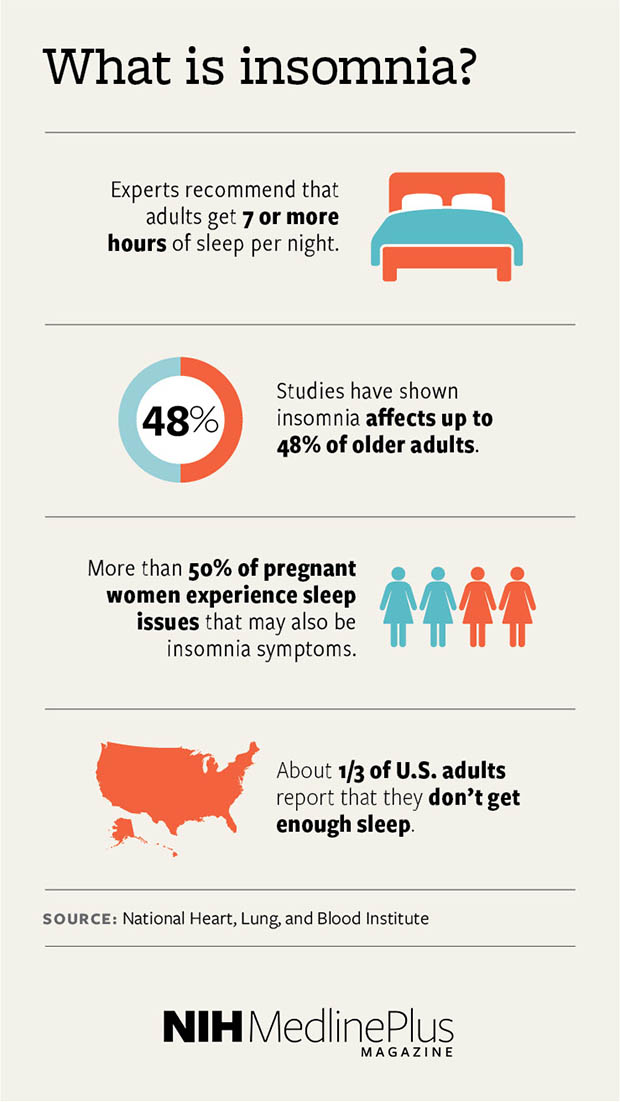Unknown Facts About insomnia coffee co.

Not known Facts About What Is Insomnia? Symptoms, Causes, Diagnosis, Treatment

Introduction What is sleeping disorders? Sleeping disorders is a common sleep condition that is defined by difficulty: Going to sleep initially. Waking up during the night. Waking earlier than wanted. What are the symptoms of insomnia? Persistent sleeping disorders might cause: Trouble dropping off to sleep and/or getting up in the middle of the night. Trouble returning to sleep.

Insomnia: Causes, Symptoms, Types, and More
Irritability or depressed state of mind. Problems with concentration or memory. What are the types of sleeping disorders? Sleeping disorders can reoccur, or it may be an ongoing, longstanding problem. There is brief term insomnia and chronic insomnia: Short-term sleeping disorders tends to last for a few days or weeks and is often activated by stress.
How typical is sleeping disorders? Sleep disorders are really common. This Website . Insomnia signs happen in around 33% to 50% of the adult population while Persistent Insomnia condition that is related to distress or disability is estimated at 10% to 15%. Just how much sleep do the majority of people need? Most grownups require around 7 to 9 hours of sleep per night but the amount of sleep required to work at your finest differs between people.
Tossing and turning and repeatedly awakening is as bad for your health as being unable to go to sleep. Signs and Triggers What triggers sleeping disorders? Numerous things can contribute to the advancement of insomnia including environmental, physiological and psychological elements, including: Life stress factors including your task, relationships, financial problems and more.

Do you have insomnia? Learn how to avoid it

Sleep anxiety and daylight saving time can exacerbate insomnia, but stretching may help - CNN
A Biased View of Sleep onset Insomnia - Journal of Sleep Medicine
Stress and anxiety disorders, depression and/or other mental health issue. Persistent diseases like cancer. Persistent discomfort due to arthritis, fibromyalgia or other conditions. Intestinal conditions, such as heartburn. Hormonal agent fluctuations due to menstruation, menopause, thyroid disease or other issues. Medications and other substances. Neurological conditions, such as Alzheimer's disease or Parkinson's disease.
What are the risk elements for sleeping disorders? Insomnia occurs regularly in women than in guys. Pregnancy and hormonal shifts can interrupt sleep. Other hormonal changes, such as premenstrual syndrome (PMS) or menopause, can also can affect sleep. Insomnia ends up being more common over the age of 60. Older individuals might be less likely to sleep comfortably due to the fact that of physical modifications related to aging and due to the fact that they might have medical conditions or take medications that disturb sleep.
